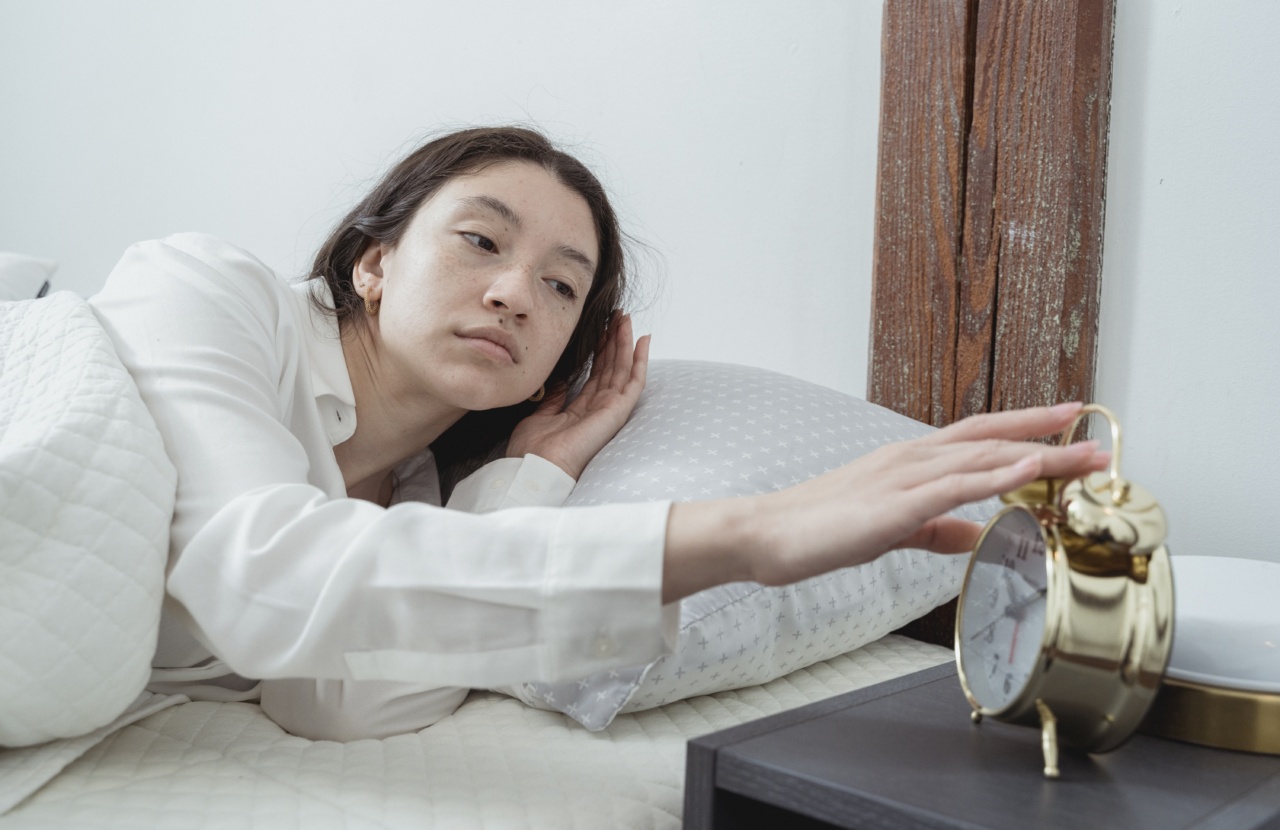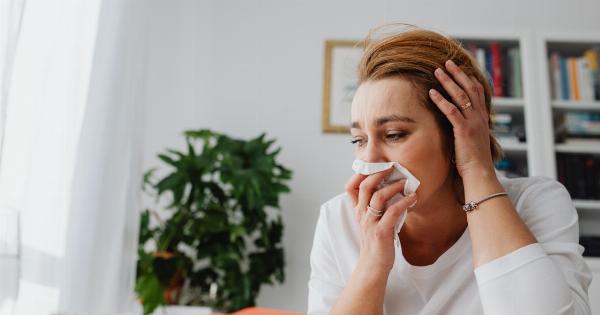Are you having trouble falling asleep at night? You’re not alone. Many people struggle with insomnia or have difficulty getting a good night’s sleep.
One factor that may be contributing to your sleepless nights is the use of electronic devices, such as smartphones, tablets, and laptops. In this article, we will explore the impact of devices on sleep and why you should consider turning them off before bed.
The Role of Blue Light
One of the main culprits behind the sleep-depriving effects of devices is blue light. Electronic screens emit a high amount of blue light, which can interfere with our natural sleep-wake cycle.
Exposure to blue light in the evening can suppress the production of melatonin, a hormone that helps regulate sleep.
Studies have shown that the use of electronic devices before bed can delay the onset of sleep and reduce overall sleep duration. This is particularly true for teenagers and young adults, who tend to be more sensitive to the effects of blue light.
Disruption of Circadian Rhythm
In addition to the impact of blue light, electronic devices can disrupt our circadian rhythm. Our circadian rhythm is our internal biological clock that regulates various bodily functions, including sleep.
Exposure to bright screens in the evening can confuse our circadian rhythm, signaling to our bodies that it is still daytime and inhibiting the release of sleep-inducing hormones.
Furthermore, the content we consume on our devices can also contribute to sleep disturbances.
Engaging in stimulating or stressful activities, such as scrolling through social media or watching intense movies, can make it difficult to relax and unwind before bed, further delaying sleep.
The Connection between Devices and Insomnia
Research has shown a strong connection between device usage and insomnia. The constant accessibility and stimulation provided by our devices can make it challenging to disconnect and transition into a restful state.
The temptation to check emails, browse the internet, or engage in online activities can keep our minds active and alert, making it harder to fall asleep.
Additionally, the use of devices in bed can disrupt sleep even further. The bright screens and the mental activity associated with device usage create a cognitive association between the bed and wakefulness, rather than relaxation and sleep.
This association can contribute to insomnia and poor sleep quality.
The Benefits of Device-Free Time Before Bed
Turning off your devices before bed can have numerous benefits for your sleep and overall well-being. Here are some of the advantages:.
Improved Sleep Quality
By eliminating the exposure to blue light and stimulating content, you can improve the quality of your sleep.
Instead of spending time scrolling through social media or watching videos, you can engage in activities that promote relaxation and calmness, such as reading a book, practicing meditation or deep breathing exercises.
Enhanced Circadian Rhythm
Disconnecting from devices in the evening allows your circadian rhythm to reset and perform its natural sleep-wake cycle. This can help regulate your sleep patterns and make it easier to fall asleep and wake up at consistent times.
Reduced Anxiety and Stress
The constant information overload and the pressure to engage with online platforms can contribute to anxiety and stress.
Taking a break from devices before bed can provide a much-needed respite from the constant flow of information and allow your mind to unwind, leading to a more peaceful and relaxed state.
Improved Mental Health
A good night’s sleep is crucial for maintaining optimal mental health. Sleep deprivation has been linked to an increased risk of anxiety, depression, and other mood disorders.
By prioritizing device-free time before bed, you can support your mental well-being and promote emotional balance.
Tips for Establishing a Device-Free Routine
Here are some tips to help you create a device-free routine before bed:.
Set a Device Curfew
Choose a specific time in the evening when you will turn off your devices and stick to it. Setting a curfew will help your body recognize that it is time to wind down and prepare for sleep.
Consider using an alarm or reminder to prompt you to start your device-free routine.
Create a Relaxing Evening Routine
Develop a relaxing routine before bed to replace the time you would usually spend on devices. This can include activities such as reading, listening to calming music, taking a warm bath, or practicing relaxation techniques.
Find what works best for you and prioritize activities that promote relaxation and calmness.
Establish a Tech-Free Bedroom
Create a sleep-friendly environment by keeping your bedroom free from electronic devices. Remove televisions, laptops, and tablets from your sleeping area.
Charge your smartphone outside the bedroom or at least at a considerable distance from your bed to avoid the temptation of checking it during the night.
Use Night Mode or Blue Light Filters
If you must use your devices before bed, enable the night mode or use blue light filter apps. These settings reduce the amount of blue light emitted by your device, minimizing the disruption to your sleep-wake cycle.
Replace Devices with Healthy Habits
Instead of mindlessly scrolling through social media or watching videos, replace device usage with healthier habits. Read a physical book, write in a journal, practice yoga, or spend quality time with family or loved ones.
Engaging in activities that nourish your mind and body will contribute to better sleep quality.
The Importance of Prioritizing Sleep
Sleep is a vital component of our overall health and well-being. Prioritizing a good night’s sleep is crucial for our physical, mental, and emotional health.
By turning off your devices before bed, you can create a conducive sleep environment and ensure that your mind and body get the rest they need.































